Exploring Identity: ISRC of Taiwan Tech Hosts Critical Thinking Workshop.
For many Indigenous students newly entering university, limited exposure to their own culture, language, and identity practices often leads to confusion when faced with societal expectations and differing perceptions of “identity”. Although they may have the willingness to build a strong sense of self, opportunities for ongoing dialogue and self-expression are often lacking. To address this, the Indigenous Student Resource Center at Taiwan Tech held the “Critical Thinking Relay Workshop” on May 16, 2025, aiming to guide students in rethinking and reconstructing their self-identity through collective dialogue and reflection.
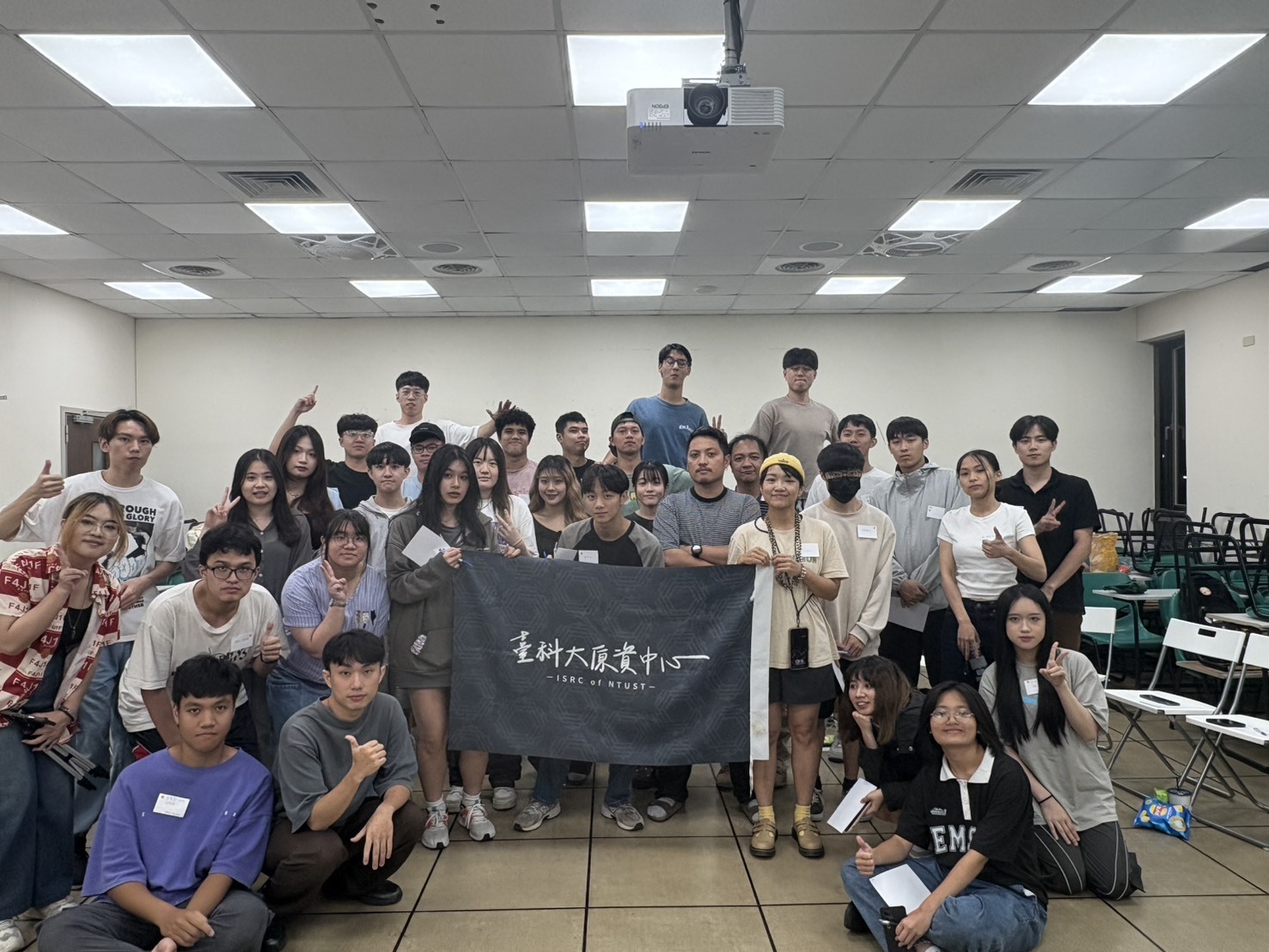
The Indigenous Student Resource Center at Taiwan Tech held the “Critical Thinking Relay Workshop”, engaging students in collective reflection and reconstruction of identity.
Bunun instructor Yi-Chun Cheng (Abus Istasipal) pointed out that most educational content emphasizes identity construction through Indigenous or mainstream cultural narratives, while the exploration and practice of Indigenous identity often remain marginalized. To address this, she began the workshop by asking students to write down “keywords” that define themselves. She then guided them to reflect on questions such as: “Does identity affect your life?”, “How are the Indigenous people you see online different from yourself?”, and “Why do you define yourself with that keyword?” Through this process, students were encouraged to begin from personal experience and gradually explore the meaning of identity and the possibilities of self-expression.
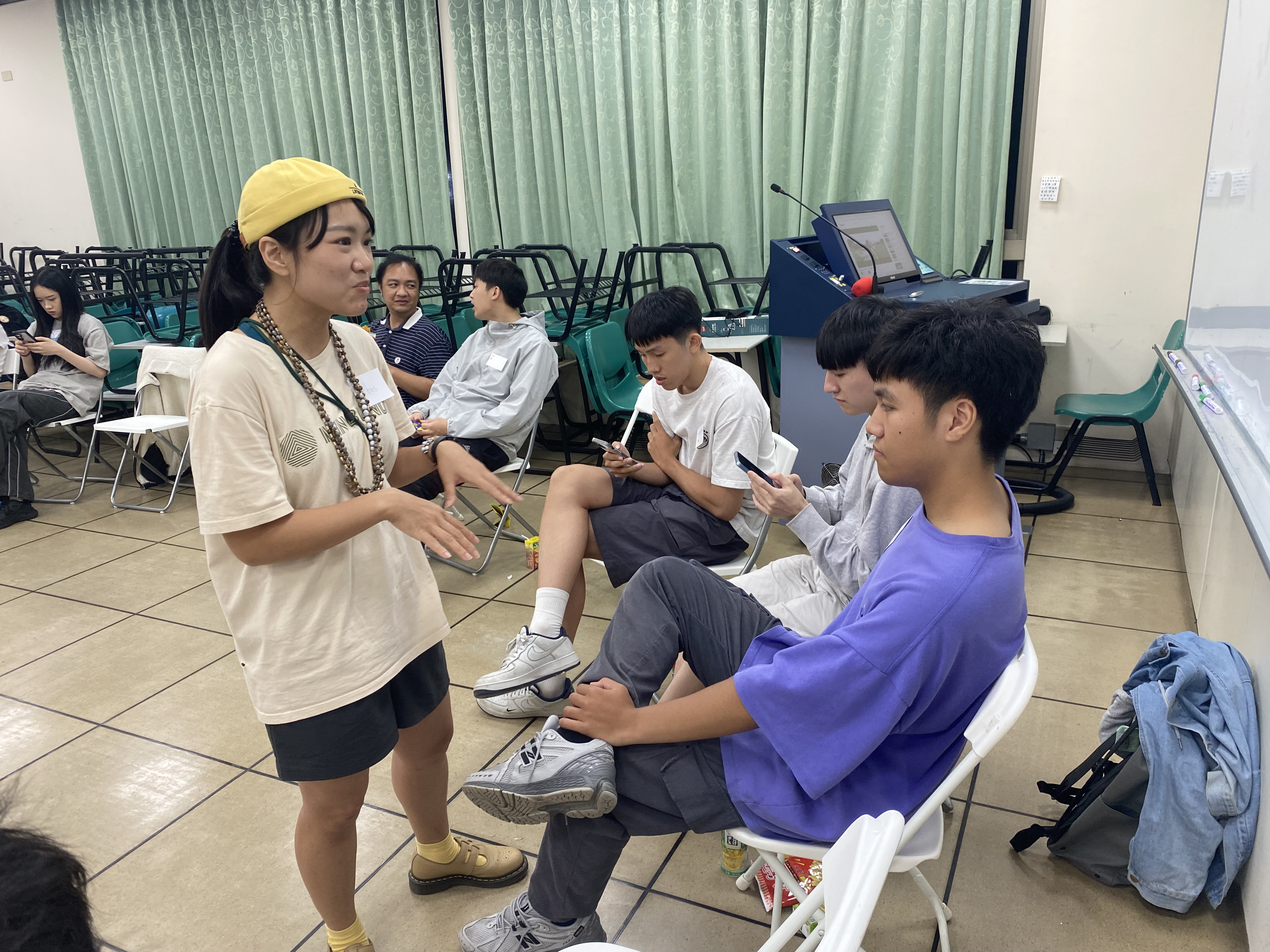
Instructor Yi-Chun Cheng (left) noted that about half of the students agreed that identity affects their lives, but they also believed they have the agency to shape their own paths.
Hao-An Yu, a third-year graduate student in the Graduate Institute of Applied Science and Technology and a member of the Bunun tribe, shared that he really appreciated the way everyone in the workshop freely expressed their thoughts, with ideas flowing throughout the classroom. He noted that there was no right or wrong - just open sharing. He believes that while identity does influence life, it is ultimately the individual who chooses how to live. In the end, it is one’s actions and behavior that shape how others perceive them.
Wei-Ming Lu, a third-year student in the Department of Electrical Engineering and a member of the Puyuma tribe, said he gained a lot from the workshop - especially when the instructor asked, “What does it mean to have an Indigenous identity for you?” That question struck a deep chord. He shared that although he has Indigenous heritage, if he couldn't even acknowledge it himself, then blood alone couldn’t define who he truly is. Before coming to Taiwan Tech, he only knew he had Indigenous ancestry, but he had never visited a tribal community or learned about Indigenous culture, leading him to question his identity. It wasn't until university that he gradually let go of those doubts and began to understand and accept who he is.
Instructor Yi-Chun Cheng noted that about half of the students agreed that identity affects their lives, but they also believed they have the power to shape their own life paths. When discussing how Indigenous people seen online differ from themselves, one student remarked, “It’s because I haven’t been seen yet.” When asked to define themselves with keywords, most students focused on personal traits, revealing diverse and open expressions of self-identity.
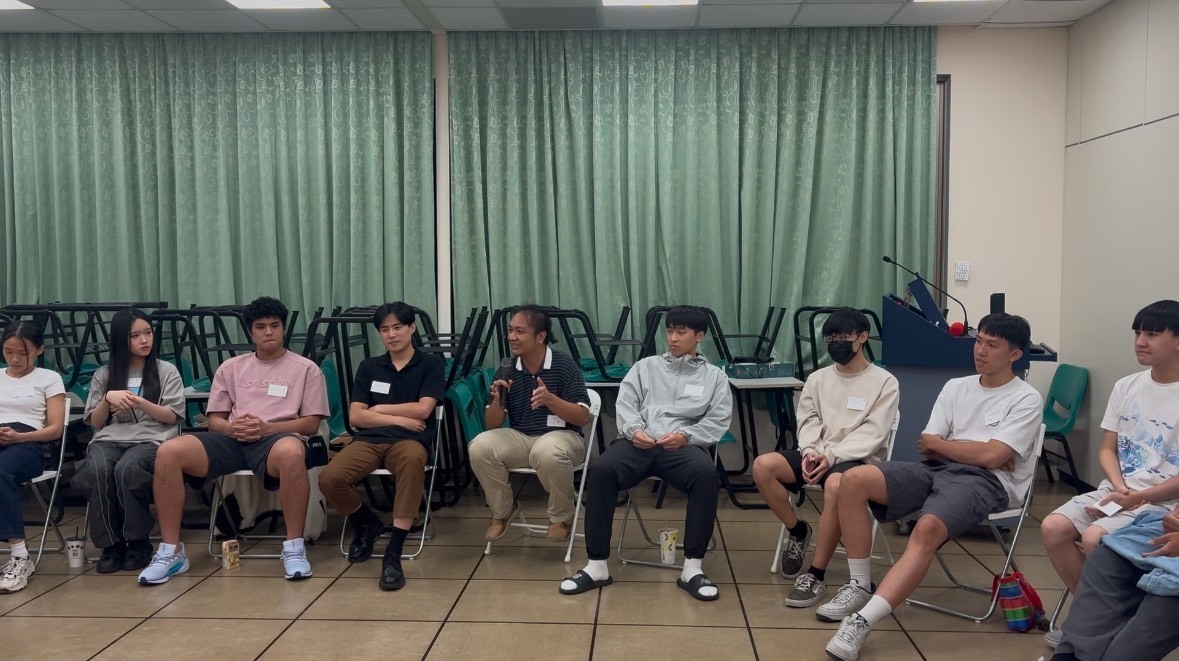
The activity began with students writing down their personal “keywords”, followed by guided reflection questions.
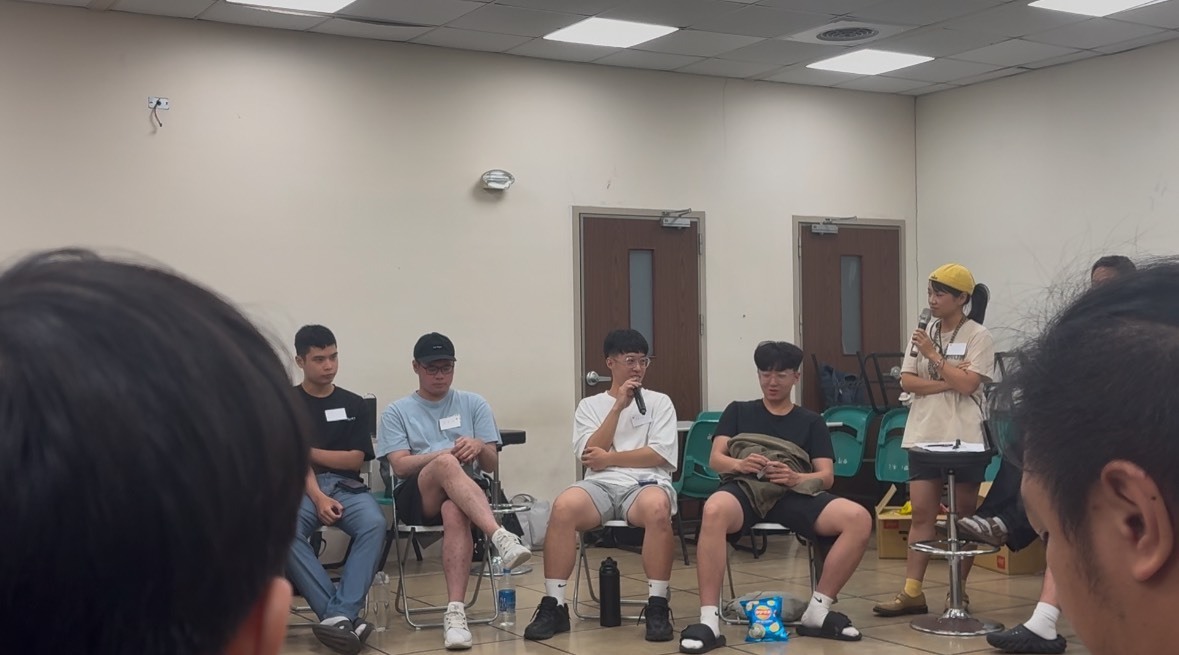
About half of the students agreed that identity influences their lives, but they also believed they have the agency to change the course of their lives.
As the boundaries between urban and Indigenous communities continue to blur, identity issues faced by Indigenous students have become increasingly complex. This thematic workshop was not only designed as a journey of self-exploration for Indigenous students, but also provided every participant with the opportunity to understand, respect, and engage in intercultural dialogue. Through repeated reflection on the questions “Who am I?” and “How do I define myself?”, students gradually untangle their identity-related uncertainties and move toward embracing the challenges and possibilities that come with their Indigenous identity.
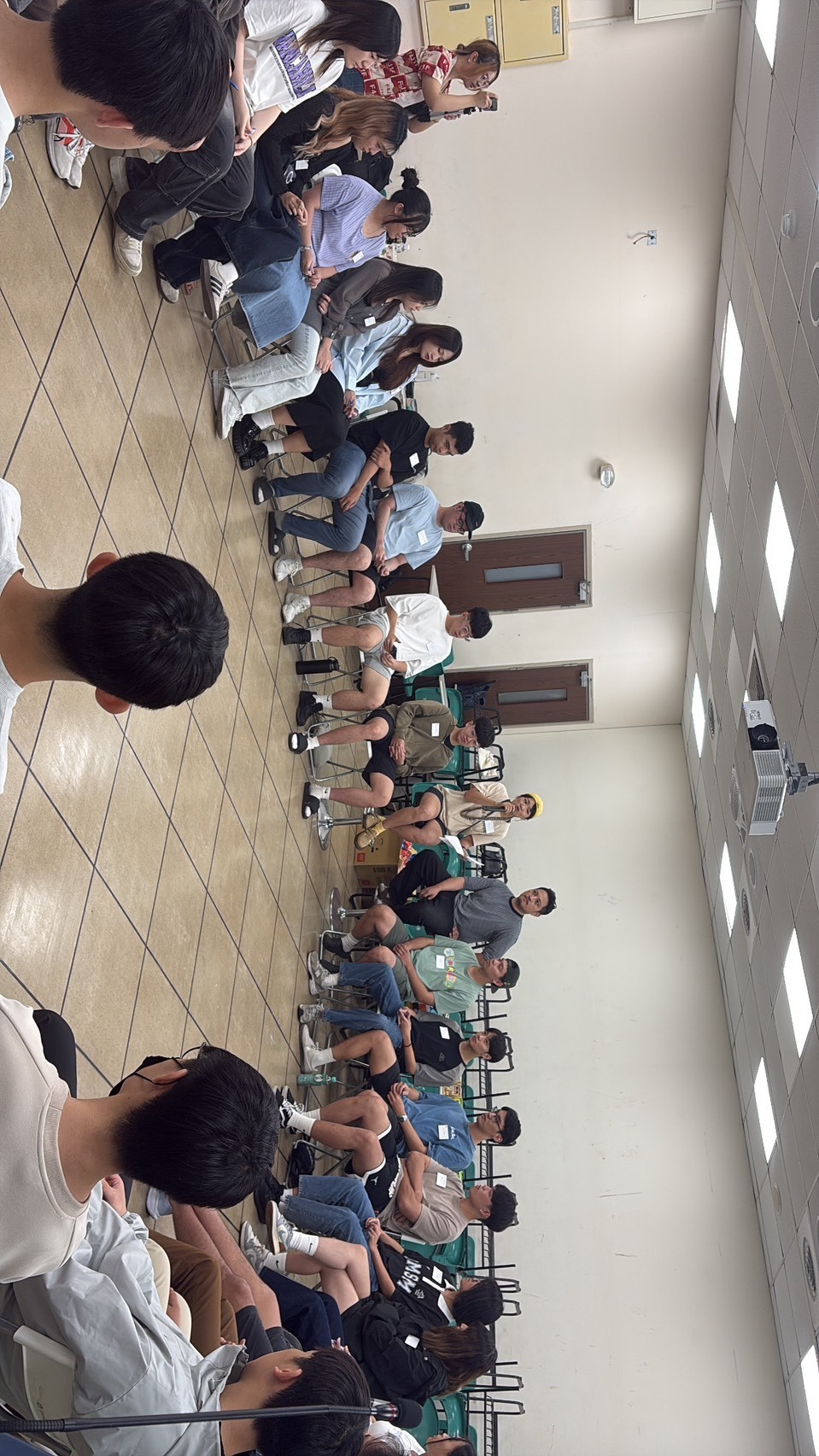
This thematic workshop was not only a self-exploration journey designed for Indigenous students but also reflected the core spirit of promoting Indigenous education for all on campus - ensuring that every student has the opportunity to understand, respect, and engage in dialogue with diverse cultures.
